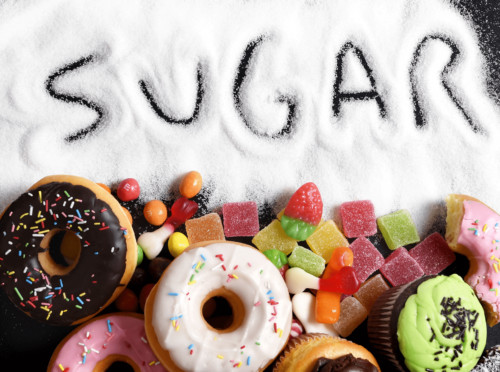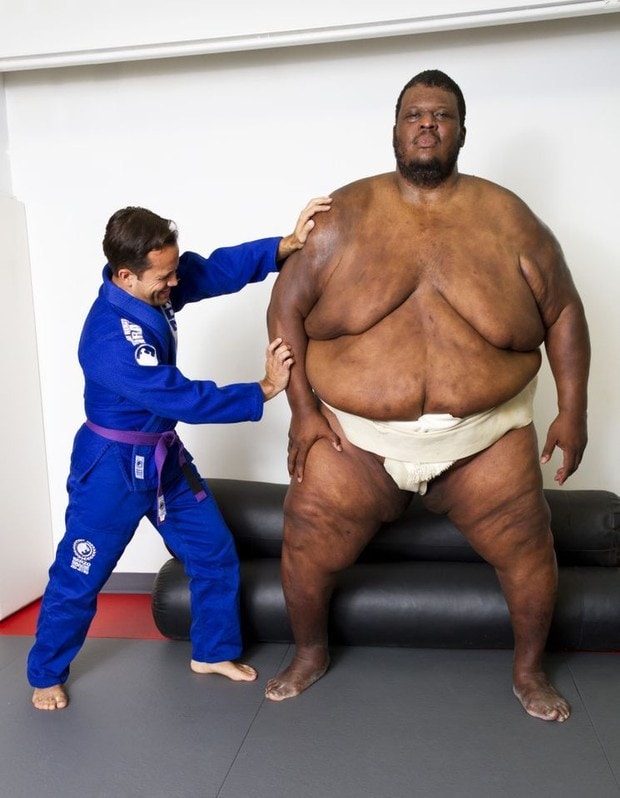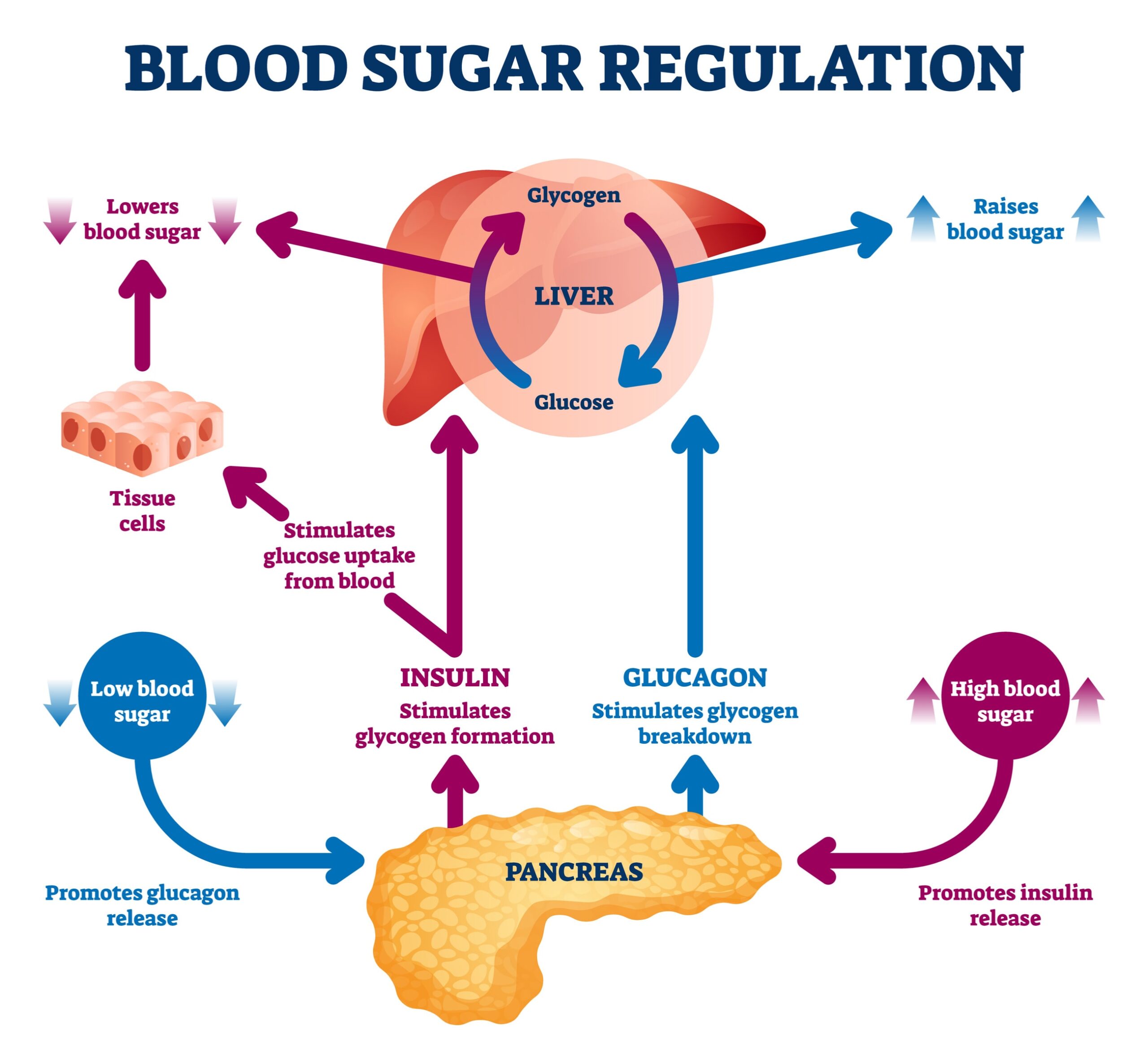Though it is indeed hard to argue with the success of certain plump fighters, just imagine if the pudgier fighters get a little more trim and muscular? While their opponents seem too busy with cutting weight and refining their diets, while these professional fighters appear to be just living life in the fat lane with no regard for their weight or the weight gain associated with excess calorie consumption.
UFC President Dana White gave Roy Nelson a dressing down during The Ultimate Fighter season after he lost miserably? Dana explained "Roy came to me one time and said, ‘I'm having a hard time getting sponsors. I said, well that's weird. I can't understand why you would have a hard time getting sponsors.
How about you cut the hair, lose some weight, get rid of the walk-in song ‘I'm Fat,' and take yourself seriously? You're a tough guy, you've got a lot of talent, you're a very well-rounded fighter.”
Fat Kills
Even as parts of the world struggle to get access to food and water, it is ironic that obesity and being overweight kills more people than starvation. The human body is vulnerable to several factors which might lead to weight gain and not all of them are easily identifiable.

Despite exhaustive workouts, well planned diets and unwavering dedication, martial artists sometimes pile on the pounds without fully understanding the reasons behind it.
The tendency to gain excessive weight can be triggered by a variety of reasons, physical or psychological. However, weight gain happens when the calorie intake of an individual exceeds the rate at which the calories are burnt.
Although unhealthy lifestyle and food habits the common causes, there are many other factors that lead to weight gain in people with active routines. It is important to note that merely gaining weight is not equal to being unhealthy. But when the increased weight starts affecting stamina and strength, the alarm bells start ringing loud and clear.
Role of Genetics in Weight Gain
Studies have shown that the genetic makeup of individuals render them susceptible to various diseases and health conditions. Genes contribute to weight gain in different ways by affecting appetite, metabolism or body-fat distribution.
Because of the lack of mechanisms to control it, the genetic disposition towards being overweight is probably one of the most important factors contributing to obesity. Scientifically, gene variants can determine how fat is stored in the body, how hungry an individual feels or the amount of food one can consume. In other cases, obesity can be the outcome of other genetic disorders such as the Barder-Beidl syndrome and Prader-Willi syndrome.
Heredity Has Little Influence on Weight Gain
While it is not uncommon to notice that the genetic makeup for obesity is often passed from parents to children, it would be erroneous to assume that genes have the last say in regulating one’s weight. It is important to note that the genetic structure is not a definitive indicator of one’s weight.
Genes usually need to be complemented with behavioral choices, like lack of exercise and external factors such as the abundance of food, to create a measurable impact on the waistline. The effect that predetermined genes produce is not set in stone, and what makes all the difference is which genes express themselves and which ones are repressed.

Studies have shown that with unchecked consumption of high sugar and fat levels, alongside minimal physical activity, the genes which increase our susceptibility to gain weight are being ‘activated’ more than ever. Martial artists needs to make note of the fact that someone inclined to be obese, is not destined to be obese. As a matter of fact, they are better suited to reverse the weight gain with dedication and perseverance.
Genetic conditions which leave an individual more vulnerable to weight gain makes the practice of martial arts even more tougher than it usually is, but with the right combination of diet, exercise and lifestyle choices can help an individual outsmart their genes and become the best version of themselves.
Environmental Factors That Contribute to Weight Gain
The immediate surroundings of an individual have a tangible, and often, direct impact on the weight of an individual. If there is a lack of access to open spaces, running lanes, affordable dojo’s, or an exposure to high levels of pollution, it becomes challenging to maintain a healthy weight.
If the supermarket is located at a considerable distance from the house, buying fresh fruits and vegetables might seem like a chore in itself, and one is likely to indulge in the much more omnipresent, easily available, and cheaper, fast food.
If the neighborhood lacks safe spaces to walk or jog, the chances of using a transport, even for short distances, go up, thus, limiting the already restricted physical activity. Offices and workplaces located in skyscrapers on high floors discourage the concept of taking stairs completely.
The way most people live, work and unwind is generally very passive, with hardly any scope of physical activity. All these environmental factors are precursors to obesity.
Weight Gain and Loss Is Mostly Driven by Environmental Factors
Thus, environmental factors, which are beyond the control of an individual, greatly determine the weight maintenance of an individual. Even socio-economic factors like disposable income and occupation greatly ascertain one’s commitment to health.
Even if martial artists are meeting all their workout and practice goals, and yet, fail to increase their physical activity beyond the studio or the gym, the benefits might not be pronounced.
The immediate environment of a martial artist, where they live, what sort of spaces they practice in, and the kind of diets they consume have a critical impact on weight maintenance.
Martial Artists need to spend time and resources in understanding and overcoming the physical and environmental barriers unique to their surroundings. Seeking help from training groups in the neighborhood, or a trained professional, to overcome local environmental barriers must be undertaken alongside the lifestyle changes needed to maintain a healthy weight.

Teila Tuli, the former Sumo wrestler got one of his teeth kicked out of his mouth at his first and only mixed martial arts event after which the fight was cancelled. He never again seen in the cage, but he did pursue a career in acting. Even if the cause of weight gain can be identified, overcoming them and losing weight is no easy task.
Locus of Control
Weight-loss and weight gain are both a test of the mind as much of the body. The concept of ‘locus of control’ describes the degree to which people believe they have control over their lives, in contrast to external forces which are beyond their control.
Those with a strong internal locus tend to believe that their actions and decisions determine the outcome of events in their lives, whereas those who identify with an external locus view everything as being controlled by outside factors.
The former make things happen in their lives, whereas the latter. This perception forms the basis of actions, decisions and plans formulated by individual, and help decide the amount of effort one takes to achieve and maintain their goals, even the ones related to health and weight. For instance, an individual who believes that their genetic disposition will definitely result in them being obese, and any effort to avert the same will be fruitless, is likely to neglect even the most basic health tips and practices. waits for things to happen to them.
Feeling powerless and out of control can be a powerful de-motivator for anyone.
If any Martial Artist feels that despite their best efforts to follow a rigorous workout regiment and a restrictive diet, they are never likely to reach their goals, they are not likely to give it their best.
Externally Focused People Should Embrace Their Disposition
While externally focused people may need the assistance of dieticians and health care professionals more, this is often denied to them since weight loss is not usually considered to be a very serious medical condition.
Martial Artists who have already conceded to their negative thoughts are not likely to benefit fully from their practice and training, no matter how intense it is. Thus, cheat days are likely to be more frequent. Focus and dedication are likely to be missing as well. It is important that Martial Artists keep sight of their goals at all times. There are reaffirmations tools and practices to rid the mind of such overwhelming thoughts, if they feel overpowered by their feelings and assumptions.
6 feet, 8 inches in height and weighing in at 882 lb (400 kg), Emmanuel Yarborough held the Guinness World Record for the heaviest living athlete. Before women were allowed to compete in the the UFC, Emmanuel was the largest breasted athlete ever to compete in the Octagon. The former World Amateur Sumo Champion earned his first and only MMA victory in 1998, four years after his first fight which he lost to Keith Hackney.
He had battled all his life with food addiction and was known to say, 'I am a prisoner in my own body.'" Yarbrough had revealed that he didn't intentionally gain the weight for sumo.

It was simply the lack of exercise and too much eating. By the age of 14, he weighed 320 pounds due to his love for fried foods. His excess weight created a host of medical problems including hypertension, high blood pressure and congestive heart failure. Yarbrough died at the age of 51 on December 21, 2015. An early death that could have been avoided if he gained control over his decisions, actions and their outcomes.
Lifestyle Obstacles to Weight Loss
Despite best efforts, one cannot deny the degree of influence other life elements have on one’s health and weight. The motivation to be fit and sticking to practice sessions takes a beating when a sudden promotion at work increases working hours, or a new born baby takes over every aspect of the life.
Being pressed for time in today’s world is the new norm, and most people feel like accomplishing work, health and personal goals within 24 hours is impossible. Thus, no matter how strong the resolve to eat healthy or taking the stairs is, in the face of exhaustion, a takeaway and an elevator generally emerge victorious.
The fact is that there are so many different factors today vying for an individual's’ attention and it has become natural to give some priorities a miss in order to make room for others.
Anticipate Events That Will Disrupt Consistency and Progress
Considering the amount of time, commitment and sacrifice the discipline of martial arts commands, it is understandable if some Martial Artists give in to other priorities that are demanding their attention. However, such a setback can result in upsetting the routine that the body is used to, and reversing the progress achieved till then.
Similarly, a disappointment in the professional or personal life is likely to put a halt to otherwise dedicated schedules, and the resultant weight gain might not be easy to shake off. Life-altering decisions like career makeovers or getting married might result in further squeezing the time allocated to dedicated health regimens.
A strenuous practice session must be followed by a rich, nutritious and fulfilling diet of the right kind. The inability to toss up easy, nutritious and quick meals could prove to be an impediment in consuming healthy foods.
Furthermore, any goal accomplishment needs to be supported by a strong social support system, and a lack of one might prove to be detrimental. For instance, Ricky Hatton, a famous boxer, is known to have weighed as much as 40 pounds over his fight weight when not in training for a fight. He admitted his weight gain was a result of too many things happening in his life.
Other Causes of Weight Gain
All things said and done, there are probably a dozen other reasons why Martial Artists tend to be overweight. The delicate equation of calorie intake and output, if disturbed in any way, can lead to storage of fat in the body resulting in weight gain. Unfortunately in today’s day and age, there are plenty of ways to wreck this balance.
Sugar Consumption
There are many invisible factors in an individual’s surroundings that cause them to overeating unknowingly. Foods that costs less and requires little time to prepare are in high demand.
This reality is recognized by food manufacturers who often do not label their take-away food products completely, leading to people buying stuff that has plenty of hidden calories.
Sugar is one such harmful ingredient that seems to be omnipresent. The cheap and easy availability of fast food, full of processed ingredients and sugar, is not the only reason of their high consumption. Fast food companies spend a considerable amount of time and resources in creating the perfectly delicious, addictive and cheap products to make them irresistible to the masses.

Furthermore, their serving portions are exceptionally large to encourage overindulgence. Such foods are consciously produced by its manufacturers to be extremely palatable and they appeal to the region of the brain which relate to addiction. People get addicted to sugar over time, increasing the risk of weight gain and obesity.
Medical Problems
While some medical problems like an underactive thyroid, Cushing syndrome and polycystic ovary syndrome directly result in weight gain, certain medications, like corticosteroids, antidepressants and seizure medication also contribute to the same. Studies have also shown that people with an unhealthy mental and emotional health are likely to have increased chances of putting on weight.
Insulin Resistance
The sensitive biochemistry of the human body is adversely affected when the diet is inadequate to meet its basic nutritional requirements. Leptin and insulin are two hormones that help regulate energy intake and its expenditure. Insulin and leptin resistance are both associated with obesity.
A diet high in sugar, grains and processed foods not only increases inflammation in the body it also results in fat gain as the excess glucose is converted to fat. Such diets cause surges in both leptin and insulin.
Insulin made by the pancreas. It enables the cells to use glucose for energy. Insulin resistance causes the cells to have trouble in absorbing and utilising glucose, leading to a buildup of sugar in their blood. Since the body is unable to utilize the sugar, it gets stored as body fat.
Leptin Resistance
Leptin is produced by the fat cells and it tells the brain if the person is hungry, should eat and store more fat, whether to reproduce or to engage in maintenance and repair. In other words, leptin send messages to the brain to let it know how much energy is available and more importantly, what to do with it.
Just like with insulin, constant exposure to high levels of leptin cause the body to become resistant them. Though leptin is supposed to increase feelings of satiety, obese people are found to have high levels of leptin. When there is leptin resistance, the hormone is unable to decrease appetite or increase energy expenditure. Leptin resistance is now believed to be the leading cause of fat gain.
Lack of Sleep
Sleep deprivation, that is quite common due to a gadget-obsessed lifestyle, also plays a role in the weight gain epidemic. Modern lifestyle choices result in people missing out on sleep or having poor-quality sleep. Research has now proved that those who eat healthy, exercise and get adequate amount of sleep find it easier to lose weight.
Sleep duration has an important role in body weight and metabolism. An American study recorded that “Participants with short sleep had reduced leptin and elevated ghrelin. These differences in leptin and ghrelin are likely to increase appetite, possibly explaining the increased BMI observed with short sleep duration. In Western societies, where chronic sleep restriction is common and food is widely available, changes in appetite regulatory hormones with sleep curtailment may contribute to obesity.”
Maintaining an Optimum Level of Weight is Not Easy
With so many environmental distractions, constant messaging that advertises unhealthy food, and large serving sizes, even the toughest Martial Artists might find it hard to maintain a strict diet. In addition to this, other lifestyle factors like high levels of stress, inadequate amounts of sleep, and exposure to high levels of pollution, are also responsible for a ballooning waist-size.
In order to attain and maintain holistic health and ideal body weight, martial artists need to be conscious of their genetic makeup, environmental factors and medical conditions that affect their body metabolism and contribute to weight gain.
While weight gain can creep up unexpectedly, undoing the damage takes consistent hard work, dramatic lifestyle changes and a focused routine. However, as mentioned before, being overweight must not be equated to being unhealthy.
Several boxers and Martial Artists are objectively heavy, yet pack a mean punch. At the end of the day, Martial Artists must remind themselves of their foremost commitment to their health, and undertake a timely course correction when the reading on the scales goes up.
